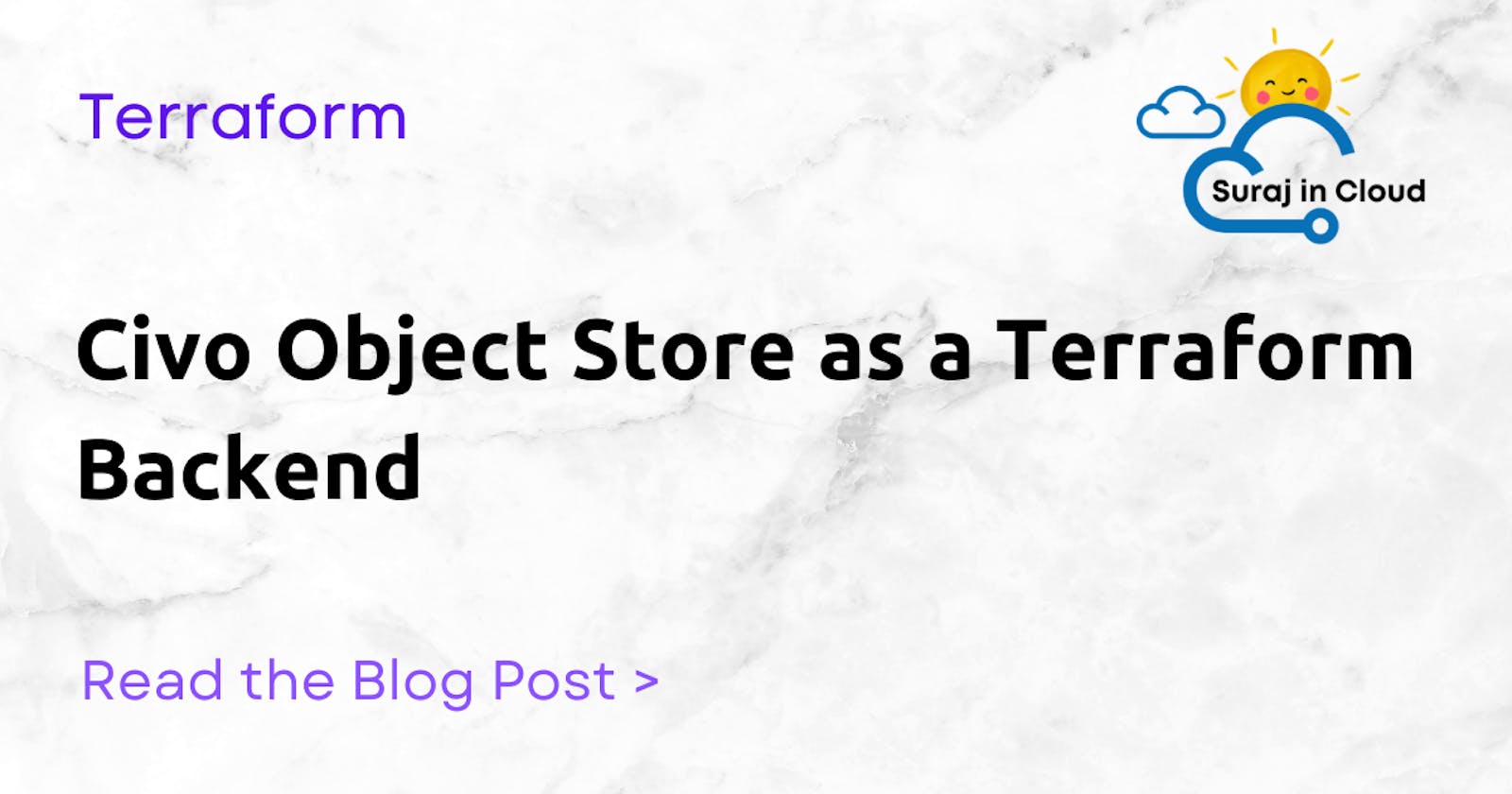Recently, Civo Cloud launched an object store that is object Storage and S3-compatible.
Read more about it here: https://www.civo.com/learn/using-civo-object-stores
In my Cloud Heist - Civo series on youtube, one of the viewers asked how we can store terraform state in the bucket, similar to how we do in AWS space.
Here's the solution for the same,
Let's create the object store
resource "civo_object_store" "statefile" { name = "state" max_size_gb = 500 region = "LON1" }Now apply this config. It will create the bucket and local state file.
$ terraform applynow let's verify from the console that the bucket is created (make sure you are in the correct region)
we will use civo CLI to get the information about the object store.
# state is the name of the bucket/objectstore $ civo objectstore show state ID : 9177e5e5-f04f-4a9b-bc25-6e028ca54187 Name : state Size : 500 Object Store Endpoint : objectstore.lon1.civo.com Region : LON1 Access Key : <ACCESS_KEY> Status : ready To access the secret key run: civo objectstore credential secret --access-key=<ACCESS_KEY>* note down the access key from the final output and run the following command to get the required environment variables. since we are using
s3backend, which is mainly used for AWS, we will have to use environment variables with the prefixAWS$ civo objectstore credential export --access-key=<ACCESS_KEY> # Tip: You can redirect output with (>> ~/.zshrc) to add these to Zsh's startup automatically export AWS_ACCESS_KEY_ID=<ACCESS_KEY> export AWS_SECRET_ACCESS_KEY=<SECRET_ACCESS_KEY> export AWS_DEFAULT_REGION=LON1 export AWS_HOST=https://objectstore.lon1.civo.comNow export those variables or store them in the bashrc or zshrc.
Let's define the terraform backend. As mentioned earlier, we are using the S3 backend, which is used for AWS. We will need to skip the region checks and metadata API checks.
terraform {
backend "s3" {
bucket = "state"
key = "terraform.tfstate"
region = "LON1"
endpoint = "https://objectstore.lon1.civo.com"
skip_region_validation = true
skip_credentials_validation = true
skip_metadata_api_check = true
force_path_style = true
}
}
Now Run terraform init.
$ terraform init
After this existing state is copied to the new backend, the state for whatever resources we create will be stored in the new state backend.
Note: As there is no dynamoDB equivalent in the civo cloud, we could not implement State locking mechanism, Hence, If you are using approach mentioned in this blog, be careful.
also follow the issue: https://github.com/hashicorp/terraform/issues/27070
I hope you learnt something new from this blog post. Click here to learn about me and how you can support my work, Thank you!

